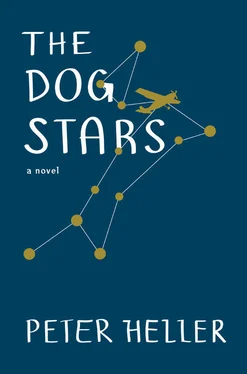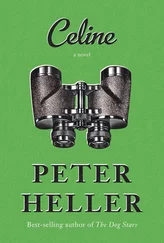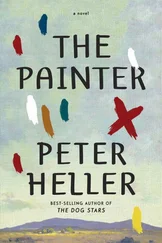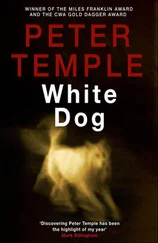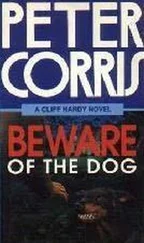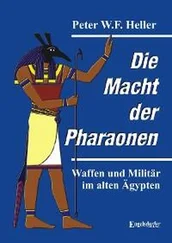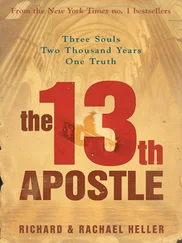A croak guttered from his cracked lips. The words came in the faintest grit of a whisper.
Fuckin Hig.
That’s all. And his hand came up stiff as a claw and touched my beard.
Touch and go. For two weeks. More. If he died it would be from dehydration, blood loss. He didn’t. Tough old bastard. We knew that. Cima didn’t want to move him. Set him up on the couch. She set and splinted his leg which was shattered from a bullet in the thigh. She cleaned and sewed shut the hole in his left side which had broken a rib and missed his stomach. The hangar was hot in the afternoon but not too bad with the door up and the hole in the west wall. Took him four days to register my face again. For a few seconds. Lapsed into kind of a coma in between. She got water and Sprite into him with a turkey baster. On the sixth day he opened his eyes while she fed him and stared.
Mrs. Hig, he said.
She said she burst out laughing. Something about his expression, even that: the facial expression of a man half dead. She said it was like a challenge, daring her to deny it, and not devoid of self awareness, something like humor.
Doctor Hig to you, she said. She told me he held her eyes for a significant moment, nodded barely, and went back to sleep.
Pops got less tense by the day. I took him up with me in the Beast and flew the circuit. Pointed out the landmarks like a tour guide. Found him a headset and explained as we went. The tower, the river, the distances, which he could see. The high cutbank which formed our moat, the only decent ford across it, the berm. The thirty mile radius to clear the roads, the families.
When we flew over they ran from the garden, the houses, the sheds, a tattered and ragamuffin welcome, waving. The kids jumped up and down. I counted the children: seven. One less, not sure who. Circled, waved held out a finger. I’ll be back.
Cima said Bangley was essentially ICU, needed someone monitoring him 24/7. We took turns. Something about her. Something over the week had grown and flowered, something hibernating in the canyon had come out into the sunlight and liked what it saw. Hard to explain.
In the role of doctor, no doubt there was expertise, an easy competence that needed no thought, a return to a hard won usefulness that made her to me seem bigger. I don’t know, taller, broader, a planet with more gravity than it had before. That was part of it. Watch anyone enter their arena of real mastery and you see it, the growing bigger than themselves. Love that. But it was something more too. As if the arrival at this half ravaged airfield on the plains, as alien as it was from anyplace she had lived before—New York, certainly, the mountains and mesas of her upbringing—as if it were an arrival she had been preparing for. For a long time without knowing it. Maybe. I don’t know. Seemed that way to me. As if part of her relaxed, as if there were a shucking of some old skin. A husk of herself that had been a barrier I hadn’t even been aware of. And in the sloughing off, she opened and flowered. Corny, huh? Not really. Magical. I mean to watch a person let go of something and flower.
I wouldn’t know what it is she let go of.
I loved to watch her sitting on the stool which I cut down to couch height, watch her lean over Bangley and talk to him softly, not like doctor to patient, or saintly minister, but with respect, with humor, like two friends. I loved to watch her check the splint, rewrap bandages, her movements more assured even than when she tended the garden with me—the difference between a half grudging second nature and the assurance of pride, of skill hard won and tempered. I loved to watch her push the dark curls out of her face, tie them back with a string or stretch her long arms and wander out into the blaze of summer sun and walk across the ramp to where the lambs were tethered inside a fence Pops had built in the shade of a globe willow. I loved to watch her undress and dive into the pond by the river and stand as she stood in the spray that first evening and beckon me in. She was simply the most beautiful being Big Hig had ever seen.
We slept in the open on the ground where I had always slept. With Jasper. But we made a willow screen, and we opened two of the flannel sleeping bags and spread them on a double mattress we hauled out of my house, the one with the porch, and I slept as I never had, not since. We slept often holding each other in a tangle of arms and legs which I had never been able to do, not with anyone. I woke in the middle of the night as I used to do and propped my head on my arms and watched the stars and counted constellations and made up others, but now I did it with the pressure of her elbow in my cheek—move it gently over—her hair in my mouth, her thigh over mine and with a sense of having been spared and having been blessed.
Still, some nights I grieved. I grieved as much at what I knew must be the fleeting nature of my present happiness as any loss, any past. We lived on some edge, if we ever lived on a rolling plain. Who knew what attack, what illness. That doubleness again. Like flying: the stillness and speed, serenity and danger. The way we could gobble up space in the Beast and seem to barely move, that sense of being in a painting.
We made love as if the whole thing were new somehow. Maybe because we had to do it so gently, so slowly. Sometimes she moved onto me and took me ever so gently inside and straddled me and we lay still so still the stars moved behind her and we moved infinitesimally and it was somehow like a conversation and it filled me with a happiness, a welling joy I can’t come close to reckoning.
Pops took a house next to Bangley’s, took an upstairs room with a view down the airfield, ever the tactician, the two like peas in a pod in some way. And sandbagged the one window and introduced himself to Bangley one morning and asked deferentially if he could borrow one of Bangley’s rifles, the Sig Sauer. Bangley was well enough by then, it was the tenth or eleventh day, well enough to sit up on the couch and look Pops over, to speak through his sewed up lip.
The other old guy, Bangley croaked. That was the first thing he said.
Pops cracked a half grin and it went straight across, and I thought Fuckin A, they almost smile the same. Bangley’s hands were bandaged and Pops reached over and touched his forearm. The gesture was touching and respectful.
That was a fight you put up.
Bangley looked at him steadily out of those eyes that could fragment, go kaleidoscopic. Didn’t say anything.
Ten or twelve huh? Maybe three armed.
Fourteen, Bangley rasped. Fourteen and four.
Pops nodded.
What went through the roof?
Rock. Or some damn thing. Had a goddamn light cannon.
They picked up their dead.
Bangley made his best simulacrum of a shrug.
I guess, he croaked. After a silence he said, They bunched once.
His throat caught and he cleared it.
Thought I was dead. In the house. I hit them with the grenade launcher. Took two more on the way here. That was enough. For them.
Bangley studied what he must have been surmising was his new friend.
Who were you with? he said finally.
Navy SEALs, Pops said. Afghanistan. Other places.
Bangley nodded, barely.
Dressed like goddamn Mongols. Six of them female. Had bows. Knew how …
He trailed off, his eyes turning, coalescing around some memory. The slightest tremor running through his body.
Pops waited. If anyone knew.
I wondered, he said finally. I took the house just to the northeast. Wondered if I could borrow that Sig for a while. While you’re in the hospital.
Читать дальше
